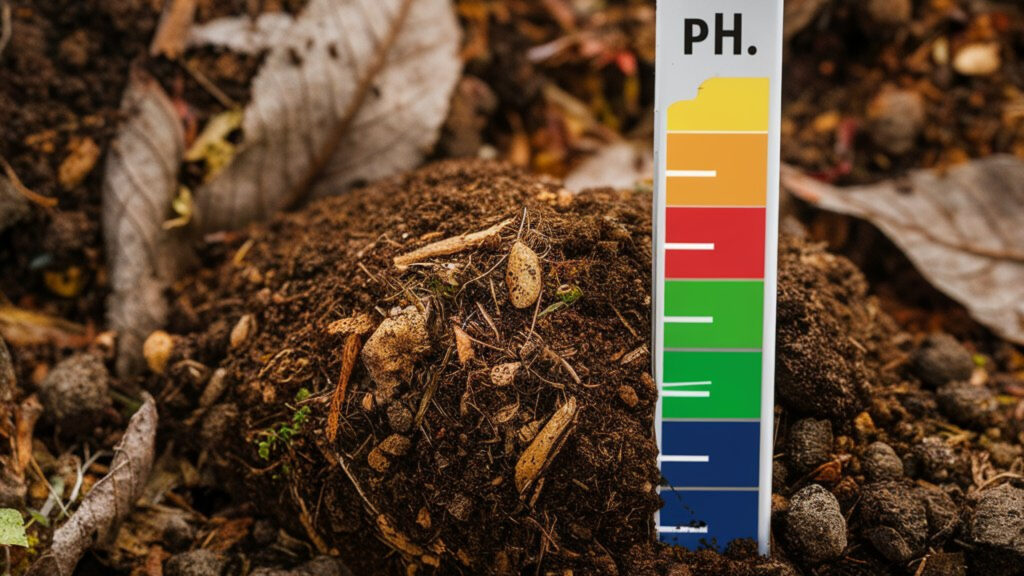Soil pH is a critical factor that significantly influences plant growth and overall soil health. The pH level determines the availability of essential nutrients to plants, ultimately affecting their growth, development, and productivity.
Recommended Best Soil PH Meter 2024-2025
| Recommendation | Product |
| Best Overall | Moistenland 4-in-1 Soil pH Tester |
| Popular Choice | XLUX Long Probe Deep Use Soil Moisture Meter |
| Best Value | YINMIK Digital pH Tester for Soil |
| Best Budget | Raintrip Soil Moisture Meter |
| Another Excellent Pick | SONKIR 3-in-1 Soil Moisture/Light/pH Tester |
What is Soil pH?
Soil pH is a measure of the acidity or alkalinity of the soil. It is determined by the concentration of hydrogen ions in the soil solution. The pH scale ranges from 0 to 14, with 7 being neutral. Values below 7 indicate acidity, while values above 7 indicate alkalinity. Most plants prefer a slightly acidic to neutral pH range of 6 to 7.5.
The Importance of Soil pH
The significance of soil pH lies in its direct impact on nutrient availability. When the soil pH deviates from the optimal range for a specific plant, it can lead to nutrient deficiencies or toxicities, hindering plant growth and health.
Nutrient Availability
The availability of essential nutrients such as nitrogen, phosphorus, potassium, and micronutrients is closely linked to soil pH. In acidic soils, certain nutrients like aluminum, manganese, and iron can become more available, potentially reaching toxic levels. Conversely, in alkaline soils, the availability of nutrients like phosphorus, zinc, and iron may be limited, affecting plant growth.
Microbial Activity
Soil pH also influences the activity of beneficial microorganisms in the soil. Many soil organisms, including earthworms and beneficial bacteria, thrive in soils with near-neutral pH levels. These organisms play a crucial role in nutrient cycling and maintaining soil structure, which is vital for plant growth.
Soil Structure
The pH of the soil affects its physical properties, including its structure and texture. Proper soil pH promotes good soil structure, enhancing water retention and drainage, which are essential for healthy root development and overall plant vigor.

Effects of Imbalanced Soil pH
When soil pH deviates from the ideal range for specific plants, it can lead to various issues, such as:
- Nutrient deficiencies
- Poor root development
- Reduced plant vigor
- Increased susceptibility to pests and diseases
- Reduced microbial activity
Measuring and Adjusting Soil pH
It is essential to regularly test the soil pH to ensure it is within the optimal range for the plants you are growing. Soil pH testing kits are readily available and can provide accurate readings. If necessary, adjustments can be made by adding soil amendments to raise or lower the pH to the desired level.
Frequently Asked Questions
What Is The Importance Of Ph In Soil?
Soil pH is crucial as it affects nutrient availability to roots. Nutrients like nitrogen, phosphorus, and potash are available at optimal pH levels.
What Happens If The Ph Of The Soil Is Too Low?
If the soil pH is too low, essential nutrients become less available to plants, leading to nutrient deficiencies. Additionally, certain elements like iron, aluminum, and manganese may become toxic to plants.
What Does Soil Ph Tell You?
Soil pH tells you the nutrient availability for plant roots. It affects the solubility of nutrients like nitrogen, phosphorus, and potash.
Why Is Ph Important?
Soil pH is important because it determines the nutrients available to the roots. Nutrients like nitrogen, phosphorus, and potash are available when dissolved in water or soil moisture, but won’t dissolve if the soil pH is too acidic or alkaline.
The pH also affects the amount of nutrients and chemicals that are soluble in soil water, which affects plant growth and nutrient availability.
Conclusion
In summary, soil pH plays a crucial role in determining the availability of essential nutrients, influencing plant growth, and overall soil health. By understanding and managing soil pH, gardeners and farmers can create optimal growing conditions for their plants, leading to improved yields and healthier ecosystems.